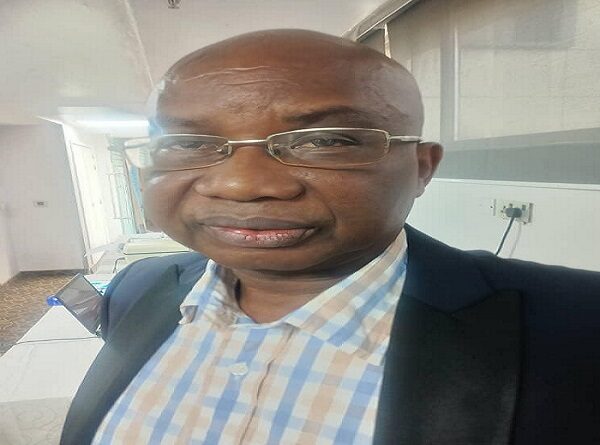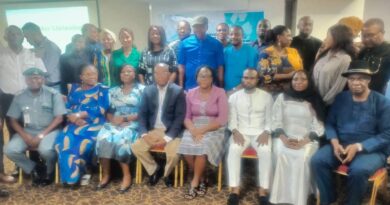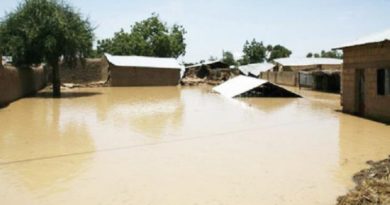We used methodology involving toolkits to gather data about plastic waste generation management – Prof. Onianwa
Professor Percy C. Onianwa, is the Executive Director, Basel Convention Coordinating Centre for Training & Technology Transfer for the African Region. The professor of Chemistry spoke with EcoGreen News during the Closing/Validation Workshop of BCCC-Africa’s Project titled “Promoting environmentally sound management and control of transboundary trade of plastic waste in Nigeria, through inventory and stakeholder mapping”
What is this workshop all about?
This is a close workshop because it is associated with a project that we commenced two years ago, in which we had our purpose to determine the total quantity or estimate of plastic waste generated in the country, which is what we referred as the inventory of plastic waste in the country.
We started it in 2022. It is a project supported by Basel Convention, which is a global convention on hazardous waste. The fund was received from the agency, development cooperation’s provided the funds and we have used a methodology involving the toolkits, a model that was developed by PRS. We called that the PRS toolkits and it was first applied in Ghana. We have applied it in Nigeria to gather some data from different parts of Nigeria about plastic waste generation management and applying all that data into the toolkits to generate data from the model on a lot of information. It is not only information about the total quantity of plastic waste generated, it is also about so many data we have seen on level of plastic waste disposed into landfills. The amount of plastic waste that is imported or exported, and the amount of plastic waste that is mismanaged. There’s a lot of data which that inventory model generated, all of which can be very, very valuable to plan how to manage plastic waste.
It is very important that we manage plastic waste well because of the hazard of plastic waste that are now very well-known globally. Nigeria is not an exemption, you cannot manage a problem if you don’t understand or know the magnitude of that problem. So to manage plastic waste properly, we first have to carry out an inventory. In addition to the inventory study, we have also tried to develop a platform to bring stakeholders together, who are involved in plastic waste management. We are creating a website that we will use to list persons involved in plastic waste management. We will use it to generate an agenda interaction, we will use it to provide information from time to time on a continuous basis and on the list also for those who are involved in plastic waste management.
Looking at the way we manage plastic waste in the country coupled with the intervention of both the Federal and State Governments, how would you rate them? Is that the way to go?
Well, it is not exactly the way to go. The government is doing its best but individuals in particular are not, because there is a very high level of ignorance or lack of awareness on issues pertaining to waste, on how to recycle or use waste in a circular manner and most especially on what constitutes hazardous waste. Some waste are hazardous and need to be disposed of in specific manner. So, it is important that the individual understand and are able to support government. There is a behavior problem in the way we deal with waste. A lot of wastes due to their physical nuisance aspect should not have been disposed carelessly where we can see them. Sometime, is it that the individuals that are not behaving well? Sometime, is it that the facilities for proper disposals are not provided? I don’t think that people will dump waste on street’s corners if there was adequate provision nearby, in a place that is not open to put their waste. So it is going to be first, sensitization of the populace on what is waste and how to manage waste in an environmentally sound manner, and then, for government to use many tools that are now used in developed countries. The waste generates fund and waste management expenses can partly be bound by individuals as well by local communities.
You talked about recycling, but if you look at the unsound way in which we carry out recycling. Do you have any message for the sector?
It is a very serious problem because when we talk about environmentally sound management that is part of what we are talking about. You need to recycle in an environmentally sound manner that does not hurt human health and the environment. A lot of recycling is not done in environmentally sound manner. Recycling of e-waste, recycling of used elasticity batteries, recycling of many other waste streams are done mostly by the informal sector that do not need the environmentally sound manner tools to recycle and cannot afford the facilities required for environmentally sound manner. Government needs to do something, needs to teach, needs to provide the enabling environment and support them, bring them to cooperatives to be able to use better facilities.
What are the categories of people invited to this workshop?
Due to the nature of the project that we carried out, it is important that environment regulators, environment enforcement agencies, non-governmental organizations that are very critical for exerting the necessary pressure on the regulatory agencies and for mobilizing awareness. We have the representatives of manufacturers association, we have the customs because a lot of waste is exported and imported out of the country, adding to some of our problems, and we have people from academia, who have been carrying out independent studies on waste issues. We have people from the media who will assist in propagating the information to the public and so on.




